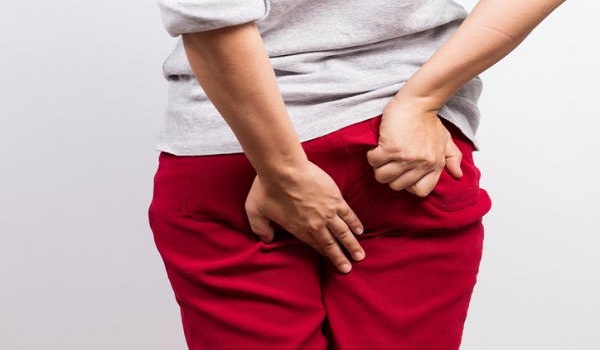How Levator Ani Syndrome Can Be Treated?
Levator ani syndrome is a long-term medical condition characterized by irregular episodes of rectal and anal pain. Levator ani is a broad muscle formed from three muscles, i.e. pubococcygeus, puborectalis, and iliococcygeus. Spasm of these muscles results in constant dull pain in the pelvis. It is a nonrelaxing dysfunction of the pelvic floor. Muscles of the pelvic floor become too tight. Women suffer more commonly from this syndrome as compared to men. Levator ani syndrome is known by many other names too like Levator spasm, Chronic anorectal pain, pelvic tension myalgia etc.

What are the causes of Levator ani syndrome?
The exact cause of this Levator ani syndrome is not known. However, there is a common belief that continuous long term tension of the muscles of the pelvic floor results in Levator ani syndrome. Inflammation of the pelvic area is also known to be contributory cause for it. Childbirth or pelvic area surgery increases the risk of developing Levator ani syndrome.
What are the signs and symptoms of Levator ani syndrome?
- Rectal pain radiating to tailbone, hips or other areas. Pain is not related to bowel movement also there are no structural abnormalities. Pain may come and go for a short duration or may even last for hours and days. Lying down or sitting makes this pain worse. Pain may be so severe or discomforting that it may wake up the patient from sleep.
- Bowel problems like constipation, straining to pass stool or difficulty passing stool may appear. Not emptying feeling after passing stool is usually present. Other bowel complaints like bloating may be present.
- Urinary complaints like increased frequency and urgency to pass urine or difficulty in urinating are present. Urinary incontinence and pain while passing urine is usually accompanied in this syndrome.
- Sexual problems like pain before, during or after sexual intercourse in women are present. Men complain about premature and painful ejaculation or erectile dysfunction.
How can Levator ani syndrome be diagnosed?
Diagnosis is generally done by excluding the possible causes known from the proper analysis of physical examination and history. This method is followed to rule out the other possible causes that may be considered from the signs and symptoms present. Usually, in men, it is misdiagnosed as prostatitis. The patient is advised to go through some tests like Stool sample, blood test, imaging tests, and endoscopic procedures.
How can Levator ani syndrome be treated?
Conventional treatment of Levator ani syndrome includes physical therapy, electrogalvanic stimulation which involves anal insertion of a probe to give mild electrical stimulation, and botox injections.
What is the Ayurvedic understanding of Levator ani syndrome?
The ayurvedic term for spasm of muscles is khalli vata. Vyana Vata is a biological force which controls the functions of the muscles. In Levator ani syndrome, this Vyana vata gets vitiated, resulting in spasm of the muscles. Ama, metabolic waste when gets deposited in the muscle tissues and nerve-endings, causes muscular spasms.
In Ayurveda treatment involves usage of herbs and herbal remedies which treats the complaint from its root cause without causing any side effects.
Herbal remedies by Planet Ayurveda for Levator ani syndrome:

Herbal Remedies For Levator Ani Syndrome
Planet Ayurveda offers specific herbal remedies for this condition. These remedies are completely Ayurvedic and free from chemicals, preservatives, and additives. All the medicines are purely vegetarian and are not tested on animals. Herbal remedies by Planet Ayurveda is made from herbs of the best quality. No side effects are observed when taken as guided by the physician.
1.Yograj Guggul:
These are the multi-herb tablets made from various herbs like Shudh guggul (Commiphora Mukul), Haritaki (Terminaliachebula) Amalaki (Emblica officinalis), Chitraka (Plumbago zeylanica) etc. These herbs are rich in anti-inflammatory and other medicinal properties. These tablets give strength and support to muscles and prevent spasm. Yograj guggul tablets also help in maintaining proper digestion, rejuvenates and strengthen the neuromuscular and skeletal system.
Dosage- Take 2 tablets twice a day after meals with plain water.
2. Ashwagandha Capsules:
These are the single herb capsules made from a single herb, Withania somnifera (Ashwagandha). Ashwagandha naturally is effective in combating stress. It relieves stress and anxiety and helps in improving the overall health of the patient.
Dosage- Take 1 or 2 capsules twice a day after meals with plain water.
3. Digestion Support:
These capsules effectively treat a complaint of the digestive system and maintain proper functioning of the digestive system. Digestion support capsules are an herbal combination of Amla (Emblicaofficinalis), Haritaki (Terminalia chebula), Sounf (Foeniculum vulgare), Jeerak (Cuminum cyminum), Pippali (Piper longum), Dhania (Coriandersativum) and Bahera (Terminalia bellerica). These capsules help in treating bloating, constipation, and acidity.
Dosage- Take 2 capsules twice a day after meals with plain water.
4. Chandraprabha Vati:
These tablets are also a combination of various herbs like Mustak (Cyprus rotundus), Shilajit (Asphaltum), Sharkara (Sugar), Haridra (Curcuma longa) etc. Chanderprabha vati helps in combating symptoms associated with Levator ani syndrome.
Dosage- Take 2 tablets twice a day after meals with plain water.
Some Basic Guidelines For Prevention Of Levator Ani syndrome:
- Drink plenty of water to stay hydrated.
- Do some basic stretching exercises before and after the workouts. During workout do not over fatigue the muscles.
- Drinking lemon water with a pinch of salt can help out with Levator ani syndrome.
- Increase intake of minerals, specifically, magnesium, potassium, and calcium.
- Avoid intake of chocolates and caffeinated beverages after 4 pm.
- Drink warm milk before going to bed.
- Use a heating pad for relief and take a hot bath.

